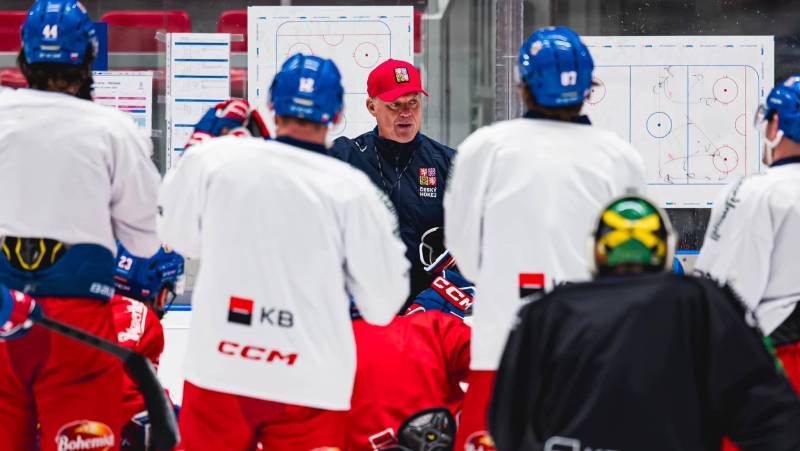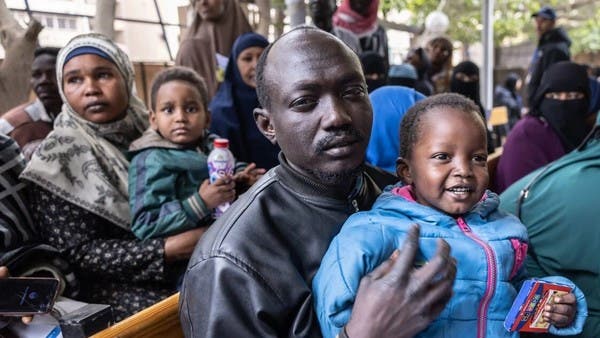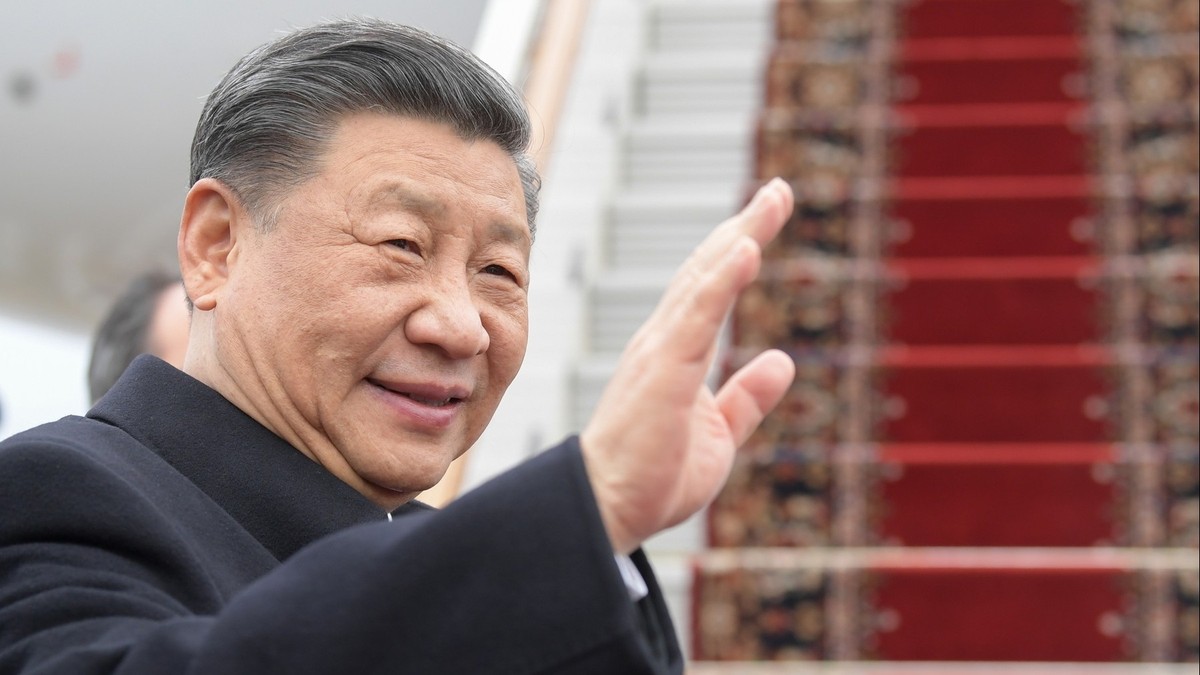In a capsule widely distributed on social networks and extracted from an interview given to a local television channel by Mr. Anani Rabier Bindzi, he believed he had to speak about Maurice Kamto in connection with the Bakassi affair. . According to Mr. Bindzi, the objective of his exit would be to rectify remarks attributable “to the friends of Maurice Kamto” arguing that the latter would have been “admitted to the International Court of Justice. The relevant parts of Mr. Bindzi’s assertions are as follows:
“From 2001, Paul Biya thought very sincerely of bringing the Bakassi case before international courts. He begins to be prepared in his own way. So Mr. Kamto happens to be one of the advisers to the Presidency who surely deals with legal problems since he is a lawyer. And, an opportunity presents itself to Paul Biya. There are two international vacancies for African countries, for Africans. There is a position at the World Trade Organization and a position at the International Court of Justice. Paul Biya therefore embarks on the conquest.
He is going to propose Mr. Manga Massina, a former director of customs. And to the International Court of Justice he will propose Mr. Maurice Kamto. For him, it’s a godsend. Mr. Maurice Kamto will therefore go to the International Court of Justice and he will therefore know all the intricacies, all the cogs before Paul Biya brings the Bakassi case before the international courts. He will make a concrete file for Mr. Maurice Kamto and for Manga Massina.
And the coincidence of the calendar wants that the debates on these positions, the first takes place at the World Trade Organization. Cameroonian diplomacy will win the post. And now when we come to the debates on the International Court of Justice, you will see here on Mutations under the pen of Alain Blaise Batongué. Batongué says this: “New York: Paul Biya campaigning for Maurice Kamto” (09/10/2008). The Cameroonian Head of State is going to prepare for the election to the International Court in The Hague. Alain Blaise Batongue. And down here, you’re going to see a copy of the Le Messager newspaper that goes one better. “Cameroon in the campaign for Maurice Kamto. The Minister of External Relations on Wednesday requested the support of Dean Omar Bongo on behalf of Paul Biya. ” That’s it. So Paul Biya does not skimp on any diplomatic means.
But unfortunately, you know that Africa is divided into several geographical spheres. You have North Africa, the Horn of Africa, Southern Africa, West Africa and Central Africa. Despite Paul Biya having set up all this diplomatic battery, human selfishness will arise. The Africans ; a coalition of Africans believe that it is not normal for Cameroon to recover all the two positions that were put for Africa that year on the international field. That’s not normal. It must be admitted between us that it is human between these people even if the candidacy of Maurice Kamto was better compared to that of the Somali. Nothing but selfishness did that. It was not necessary that Cameroon recovers the two positions which were put in competition. So we are going to block the road to Mr. Maurice Kamto despite all the efforts that Paul Biya will make. Maurice Kamto was therefore not admitted to the International Court in The Hague. It must be said with force. He was not admitted.
But Paul Biya does not give up. He sees that there is the arbitral tribunal nearby; an international court that will surely give its opinion when Bakassi’s case arrives in The Hague. He does everything: Maurice Kamto will go there. Maurice Kamto therefore entered the Arbitral Tribunal rather but not the International Court in The Hague as most of his friends tell.
So, Paul Biya will move on to the second phase. We must compose the delegation of people who will go to the International Court in The Hague to defend the Cameroon case.
TALK TO THE FACTS
Rather than “shed light” on what he considers to be “a matter”, Mr Bindzi unfortunately made statements on a file which he clearly does not know and on which he curiously did not carried out the basic data collection and analysis work that is expected of a personality of this profile exercising the profession of journalist and having a certain interest in the history of Cameroon. The result is a web of anachronisms, untruths, inaccuracies, fabrications or manipulation that should be denounced by simply giving voice to the facts.
1.ANACHRONSMS: According to Mr. Bindzi, “From the years 2001 Paul Biya thought very sincerely of bringing the Bakassi affair before the international courts. He begins to be prepared in his own way. So Mr. Kamto happens to be one of the advisers to the Presidency who surely deals with legal problems since he is a lawyer. It should be recalled from the outset that Cameroon had seized the International Court of Justice (ICJ) in the Bakassi case by a request dated March 29, 1994, and that the judgment of the said Court in this case was rendered on October 10, 2002, after eight years of proceedings. How could Mr. Biya be thinking “sincerely” about seizing the Court in 2001, in a case which Cameroon had seized the Court since 1994 and in which it rendered its judgment in 2002?
The information recalled above is public and freely accessible on the ICJ website. Anyone interested in the question could therefore check them, a fortiori any communication professional. This minimum precaution becomes an imperative for an individual involved elsewhere in the useful work of popularizing certain elements of the history of Cameroon. Failing to sacrifice to this requirement of rigor, one pours not only into revisionism, but one deserts the personality to which one endeavors to attribute systematically the best role whatever the cost. We thus end up making Mr. Biya a retarded person who, seven years after the referral to the ICJ by Cameroon and shortly before the rendering of its judgment in favor of Cameroon, is still thinking about training those who would one day bring the Bakassi case. before international courts!
2.CONTREVERITY: We also take the liberty of attributing to Mr. Biya advisers that he never had, because Professor Mr. Maurice Kamto has never held any position at the Presidency of the Republic. It is however easy to verify, unless such a lie is intentional and serves other purposes.
3. CONFABULATIONS AND INACCURACIES: The second series of assertions, which we take up, highlights an obvious ignorance of the subjects treated: “And, an opportunity is offered to Paul Biya. There are two international vacancies for African countries, for Africans. There is a position at the World Trade Organization and a position at the International Court of Justice. Paul Biya therefore embarks on the conquest. He is going to propose Mr. Manga Massina, a former director of customs. And to the International Court of Justice he will propose Mr. Maurice Kamto. For him, it’s a godsend. Mr. Maurice Kamto will therefore go to the International Court of Justice and he will therefore know all the intricacies, all the cogs before Paul Biya brings the Bakassi case before the international courts. He will make a concrete file for Mr. Maurice Kamto and for Manga Massina. And the coincidence of the calendar wants that the debates on these positions, the first takes place at the World Trade Organization. Cameroonian diplomacy will win the post. »
It should be remembered that if Mr. Manga Massina indeed acceded to a post of director within an international organization on June 30, 2007, it was the World Customs Organization and not the World Trade Organization as we makes it believe[1].
4.CLARIFICATIONS: Candidatures for the post of judge of the International Court of Justice are not presented by a government or by the Head of State. Such candidatures are presented by the national groups of the Permanent Court of Arbitration, at the invitation of the Secretary-General of the United Nations (See Articles 4 and 5 of the Statute of the ICJ). In one of the publications intended for the general public, the ICJ summarizes this procedure in the following terms: “The right to present candidates belongs to all the States parties to the Statute. The presentations are made not by the government of the State concerned but by the group of members of the Permanent Court of Arbitration (CPA) designated by this State – that is to say by the four jurisconsults likely to be called to serve on an arbitral tribunal under the Hague Conventions of 1899 and 1907” (page 22 of the ICJ Manual, https://www.icj-cij.org/…/handbook-of-the-court-fr.pdf). At the time of the presentation of Professor Maurice Kamto as a candidate for the post of judge at the International Court of Justice, the following personalities were members of the Cameroonian national group of the Permanent Court of Arbitration: Mr. Alexis Dipanda Mouelle, Mr. Paul Bamela Engo , Prof. Joseph-Marie Bipoun Woum and Prof. Ephraim Ngwafor (PCA-annual-report-2008.pdf (pca-cpa.org).
5. MANIPULATION: Mr. Bindzi praises Paul Biya’s vain diplomatic efforts to have Maurice Kamto “admitted” to the International Court of Justice: “So we are going to block Mr. Maurice Kamto’s way despite all the efforts that Paul Biya will do. Maurice Kamto was therefore not admitted to the International Court in The Hague. It must be said with force. He was not admitted. ” How to explain the failure when “Paul Biya (did not skimp) on any diplomatic means, including going to New York “in the campaign for Maurice Kamto”, and that the latter had a “more solid” file than that of its competitor? The most usual excuses are retained: the divisions of Africa, human selfishness, Cameroon could not recover the two positions supposedly intended for Africa that year, etc.
6. INACCURACY AND CONTREVERITY: Let us recall that Mr. Bindzi is mistaken about the conventional division of Africa into geographical zones by wrongly making the Horn of Africa a zone, forgetting Southern Africa and pairing Africa West and the Center. It should then be emphasized that the positions for which Mr. Manga Messina, on the one hand, and Mr. Maurice KAMTO, on the other hand, were to compete were not open the same year. The appointment of Mr. Manga Massina to one of the directorates of the World Customs Organization took place in June 2007 as indicated above, while the election to the International Court of Justice was held in November 2008 at the United Nations in New York. Moreover, it is not unusual for two or more nationals of the same African country to have obtained positions of high responsibility within international organizations during the same year. To stay within the realm of international law, we know that judges of Ugandan nationality sit or have sat concurrently and for at least ten years within the three international judicial institutions that are the International Court of Justice (Ms. Judge J. Sebutinde, judge since 2012 re-elected in 2020), the International Criminal Court (Mrs. Judge Bossa, elected in 2017), the Special Tribunal for Lebanon (Mr. Judge Nsereko) or, in his time, the Criminal Court for Rwanda (Madame Justice Bossa from 2003 to 2013) or its outgrowth which is the International Mechanism exercising the residual functions of the criminal courts (Madame Justice Bossa, late Madam Justice Nahamya). At this precise moment, two Ugandan judges sit at the same time at the ICJ and at the ICC! Could it therefore be that, despite appearances, Paul Biya and his diplomacy really did not campaign for Maurice Kamto? Instead of the usual incantations, we would rather need concrete acts illustrating the efforts truly undertaken by Paul Biya and Cameroonian diplomacy in this case. With regard to an election officially opened in January 2008, for example, what did Cameroonian diplomacy do (or not do) to have the candidacy of Maurice Kamto endorsed by the African Union? The issue of African candidates for positions in the international system was indeed on the agenda of two meetings of the Executive Council of the African Union in January 2008 in Addis Ababa (see EX.CL/Dec. 405 (XII)) and June 2008 in Sharm El-Sheikh (see Doc. EX.CL/449(XIII))[2].
7.CONTREVERITY AND MANIPLUATION: The fourth group of statements by Mr. Bindzi mentions Paul Biya’s supposed efforts to place Maurice Kamto in an international institution after the failure of the candidacy for the ICJ. He says: “Paul Biya does not give up. He sees that there is the arbitral tribunal nearby; an international court that will surely give its opinion when Bakassi’s case arrives in The Hague. He does everything: Maurice Kamto will go there. We do not know which arbitral tribunal Mr. Bindzi is talking about. It is assumed that it could be the Permanent Court of Arbitration, due to the physical proximity to the ICJ, the two institutions being all housed in the Peace Palace. Unfortunately for him, the Permanent Court of Arbitration is not an arbitral tribunal, but a structure providing services comparable to those of a registry to various arbitral tribunals set up to hear certain disputes. In fact therefore of Court, the CPA is not one. The international office of this institution simply maintains a list of persons designated by their States and likely to be chosen by parties to a dispute. They are therefore simply potential arbitrators, each State party being able to appoint up to four people for a renewable six-year term. There is no campaign to fight to be registered on the list of “Members of the Court”, the names communicated being automatically registered, without guarantee of being designated as arbitrator. Maurice Kamto was listed on the PCA list on October 19, 2010 (PCA-annual-report-2010.pdf (pca-cpa.org)). The Bakassi case had been closed, as we have already said, for 8 years. There was therefore nothing to learn from it, the CPA not being the antechamber of the ICJ and would therefore have had no mandate to “give its opinion when the Bakassi file (would arrive) in The Hague. »
8. VAIN EXERCISE BY MR. BINDZI: Beyond the anachronisms and untruths that have just been demonstrated, Mr. Bindzi’s ultimate intention in his interview was to “say forcefully” that Maurice Kamto “did not been admitted “to the ICJ” as most of his friends say.” The professional activities of Maurice Kamto are public knowledge and are available on the internet. At no time, whether in writing, orally or by any other channel, did Maurice Kamto claim to be a judge at the International Court of Justice. On the other hand, we cannot ignore the fact that Professor Maurice Kamto has been appearing before the International Court of Justice for more than two decades. He was co-agent, counsel and advocate for Cameroon in the so-called Bakassi case from 1994-2002. He was counsel and lawyer for the Republic of Niger in two cases, namely that relating to the Land Border (Republic of Benin / Republic of Niger) from 2003 to 2005 and that relating to the Border Dispute (Burkina Faso / Niger) from 2010. to 2012. Professor Maurice Kamto assumed similar responsibilities on behalf of Guinea (Conakry) in the Diallo case (Guinea v. Democratic Republic of the Congo) from 2003 to 2004. Finally, he was Counsel and Lawyer for the Republic of Equatorial Guinea in the case concerning Immunities and Criminal Proceedings (Equatorial Guinea v. France) from 2016 to 2020. All of the above information is publicly available to anyone who takes the trouble to seek it.[3]
****
9.THE GENIUS OF MAURICE KAMTO: It still seems difficult for some people to accept the evidence of the central role of Professor Maurice Kamto in the successful outcome of the treatment by the International Court of Justice in The Hague of the Bakassi case. This unhealthy attitude, unfortunately fueled by people with first-hand information, could not prosper any better. Without the genius of Maurice Kamto, Cameroon would simply not have had standing to seize the International Court of Justice and the latter would not have had the jurisdiction to examine the case brought by Cameroon. Indeed, the consent of the parties involved is necessary for the ICJ to be able to examine a dispute between them. Among the various means by which States may consent to have their legal disputes tried by the ICJ is the declaration of acceptance of the compulsory jurisdiction of the Court which is defined by paragraphs 2 and 3 of the Statute of the Court. ICJ. The group of states which make such declarations find themselves, vis-à-vis the ICJ, “in a situation somewhat comparable to that of the inhabitants of a country vis-à-vis their own courts. In principle, each State of this group has the right to summon one or more other States of the same group before the Court by submitting an Application to it and, conversely, it agrees to appear before the Court in the event that it is summoned by one or more several of these states. »[4]
10. On September 3, 1965, Nigeria “recognized[nu] as obligatory by operation of law and without special agreement, with regard to any other State accepting the same obligation, that is to say under the sole condition of reciprocity, the jurisdiction of the International Court of Justice…” The declaration of acceptance of the compulsory jurisdiction of the Court by Cameroon was introduced on March 2, 1994[5], ie 27 days before the submission to the ICJ of its request to institute proceedings against Nigeria relating to the question of sovereignty over the Bakassi peninsula! Not surprisingly, Nigeria vigorously opposed Cameroon’s invocation of its declaration of acceptance of the Court’s jurisdiction as the basis of the Court’s jurisdiction to entertain Cameroon’s Application. In its judgment of June 11, 1998, the ICJ recognized the validity of the basis of jurisdiction used by Cameroon and declared itself competent to rule on the dispute brought by Cameroon. The merits of the Bakassi case could therefore be examined. The Bakassi case would be stopped at this level, in 1988, if the basis of jurisdiction had been rejected. The initial genius of Maurice Kamto was to develop and submit to the authorities of the State the legal weapon of mass destruction which was the drafting and the sequenced and subtle introduction of the two following acts: the declaration of acceptance of the mandatory jurisdiction clause of the ICJ on March 3, 1994 and the motion to institute proceedings on March 29, 1994. The rest, of course, is history. History will also remember that as early as April 30, 1998, a few weeks after the ICJ hearings on Nigeria’s preliminary objections, that country substantially amended its declaration of acceptance of the compulsory jurisdiction of the ICJ by adding of reserves. Since then, this declaration can no longer serve as a basis of jurisdiction for certain types of disputes, which are reminiscent of circumstances similar to the Bakassi case, including the following: “(i) When one of the parties to the dispute has accepted the jurisdiction of the Court by a declaration filed less than 12 months before the filing of an application bringing the dispute before the Court, after the publication of this amended declaration; » ; “viii) When the dispute relates to the attribution, delimitation or demarcation of a territory (whether land, sea or lake territory or part of the airspace overlying ) unless the Government of Nigeria expressly consents to the jurisdiction of the Court and within the limits of such consent; “.[6]
In the same vein, the television channel VISION 4 has spread in untruths on which it is important to come back very quickly.
Maitre Amedée Dimitri Touko Tom
[2]
[4] See https://icj-cij.org/…/docu…/handbook-of-the-court-fr.pdfpage 40.



:format(url)/cloudfront-us-east-1.images.arcpublishing.com/lescoopsdelinformation/22NETJEOLNHTZHIUKI343RL3V4.jpg)

:quality(85)/cloudfront-us-east-1.images.arcpublishing.com/infobae/QIOZEJGN5NE2XD755L3PKMTQSM.jpg)



